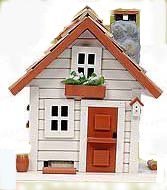 |
BestReplacementWindows.org |
The Good and Bad of Replacement Windows |
|
|
|
No BS. No Hype. Just The True Facts About All Replacement Windows. |
Vinyl Replacement WindowsWhat About Vinyl Replacements?A popular choice for a replacement window is a Vinyl Replacement Window. There are a number of very good reasons for this. Vinyl windows are custom sized. Therefore you can make the window fit the house; you don't have to make the house fit the window. This can save you considerably on labor costs. Another advantage is that they are maintenance free. No painting is ever required. The glass of course still has to be cleaned periodically. Feature wise vinyl replacements generally do all the things a homeowner wants. They generally tilt in (double hung windows) for easy cleaning. Almost all today are double glass, so the storm window is built in, with anywhere from 3/8 to 1 inch spacing between the glasses. One inch being optimal for thermal efficiency. Most today also have an "E-Coating" on the glass, either Argon or Krypton gas between the glass as well as a thermal or so called "warm edge" spacer. All vinyl windows should be fusion welded, both the frame and sashes. Better vinyl windows will have their welds beveled out for a fine finished look. They should also be reinforced underneath with metal...aluminum or galvanized steel (stronger ...which is better). The things that are not so good about vinyl windows, and why they are at the bottom of the food chain are the following. Vinyl is not a strong material compared to the other options, and as you know strength is the most important feature in a window as far as "life expectancy" is concerned. Vinyl also expands and contracts quite a bit. That is why in vinyl siding the panels are overlapped...because they move! That's a great idea in siding, not so great in windows. When you expand and contract like that you tend to break the caulking seals around the window. It gets drafty. To artificially make the material appear stronger many vinyl windows at the outside of the sill will have some kind of lip, or ridge, or pocket. This is like corrugating a piece of paper. The shape seems to make it stronger. The problem is, when you add that lip or ridge, you now trap the water and as a result have to provide "weep Holes" The problem with weep holes is that they clog up with lint and fuzz and dust etc., and then the water doesn't drain properly and can cause damage inside the house. The sill on a double hung window should be sloped with no weep holes just like a wood window has.
|
||
|
|
|
|
|
|
© Copyright RAJIS LLC, 2009. All Rights Reserved.
